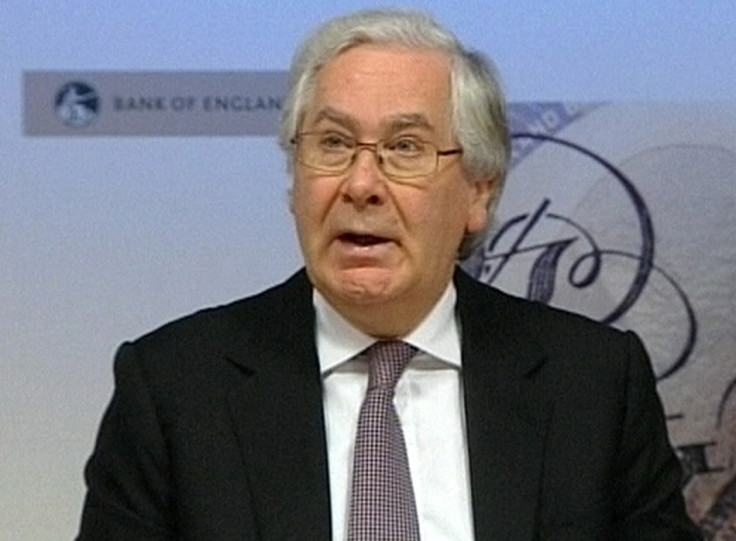Bank of England will Extend QE if Eurozone Crisis Deepens: Reuters Poll

Chances of Bank of England monetary policy committee members extending quantitative easing in the UK are hanging in the balance, according to a new poll of economists, with activity in the debt crisis-hit eurozone set to tip the balance either way.
Eyes are on the Bank to help stimulate growth in the British economy after it tumbled back into its second recession in four years, with political instability and government bond market volatility threatening to bring down Greece and Spain, potentially breaking up the eurozone.
A poll of 25 economists by Reuters revealed a median forecast of a 50-50 chance that the Bank will add to its £325bn QE programme, known as the asset purchase facility, with those thinking an increase is more likely than not predicting an extra £50bn of monetary stimulus.
"There is a lot of uncertainty around the eurozone, and what happens in the eurozone will determine what happens in terms of monetary policy in the UK," Scott Corfe, senior economist at the Centre for Economics and Business Research, told Reuters.
"If the crisis does escalate quite significantly then more QE is almost a certainty. But if politicians manage to reassure the markets that they are working towards to some sort of sustainable solution then the Bank can hold off."
A second round of elections in bailed-out Greece is due after the first failed to produce a conclusive result and opposition parties, including those of pro and anti-bailout stances, could not reach agreement and form a coalition.
If no conclusive result is returned this time, or a strictly anti-bailout party, who rejects the austerity required for the EU-IMF cash injection, wins then some argue a Greek exit from the eurozone is unavoidable, as is the market turmoil it would unleash.
Spain has just agreed a €100bn refinancing for its banks by the IMF and EU, though its borrowing cost is tilting towards an unsustainable level and many fear this will not be the last bailout the country needs - and that there simply is not enough money for any more.
Uncertainty in the eurozone and the potential for its collapse is unsettling the UK economy, which names Europe as its biggest trading partner.
With the British economy contracting by -0.6 percent across the last quarter of 2011 and the first three months of 2012, questions were asked of the Conservative and Liberal Democrat coalition's stubborn commitment to its austerity programme.
Both the prime minister, David Cameron, and the chancellor, George Osborne, have reasserted their commitment to stringent public sector cuts as they trim the state in order to bring the budget deficit down.
The Bank of England has been attempting to encourage big businesses to spend by buying up high quality assets from the markets, such as gilts, in order to improve liquidity.
Recent research by accountancy firm Ernst & Young showed that businesses had been hoarding the cash gifted to them by the Bank's stimulus.
Some are calling for a change in direction for the Bank's stimulus, if monetary policymakers decide more is needed, such as cheap loans to small and medium-sized businesses, or demand-side support for consumers.
Others reject the need for stimulus and say the government should focus on supply side reforms, such as tax cuts, in order to encourage growth from UK businesses and investment from abroad.
Sticky inflation raised doubts over the Bank's forecast that it would fall back to the government's 2 percent target by the end of the year.
A surprise increase in March created jitters over the £325bn QE programme and, in the face of recession, made the Bank's decision over whether to extend its stimulus increasingly difficult.
Inflation has since fallen back again, to 3 percent in May.
When the asset purchase facility hit its target in May the monetary policy committee decided to hold off any increase.
It revised its timescale for inflation to meet its target back to the end of 2013.
UK growth forecasts were also revised down, from 1.5 percent for 2012 to 0.8 percent.
The UK economy will be buoyed slightly by the country's hosting of the Olympic Games, which is expected to give a 0.6 percent lift.
© Copyright IBTimes 2025. All rights reserved.





















